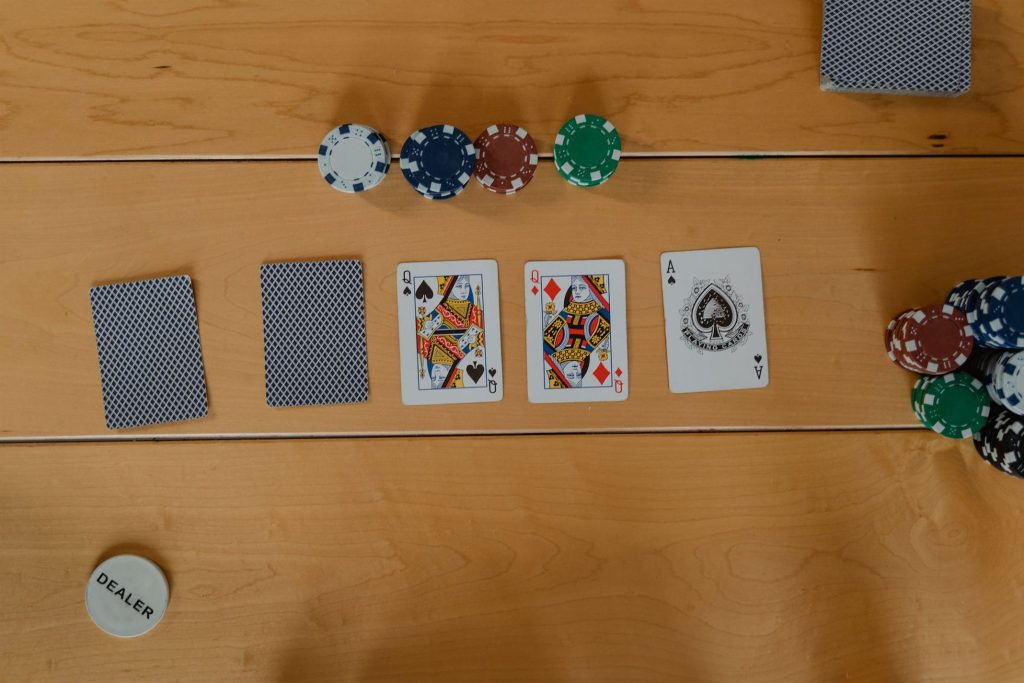Knowing how to accept good advice is essential to any poker player, no matter the experience level. The problem, however, is that not all advice other players give is beneficial. To ensure you are taking the best advice, here are some critical questions to ask yourself before accepting or applying poker advice:

“Do I Understand the Jargon Used?”
Poker is full of jargon. It can be intimidating for new players to understand the terminology used by experienced players (and even some less experienced but still knowledgeable players). Before taking and applying poker advice, ensure you fully understand what the advice suggests. Otherwise, it could lead to bad decisions or playing against opponents who better understand the game.
If you’re getting deeper into the poker metagame and start encountering terminologies you no longer understand, it’s time to research. Look up the specific terms and know what they mean and how they apply to poker.
“Is It Based on General Poker Concepts or Specific to a Certain Variant?”
Advice in poker can be quite different depending on the variant being discussed. Knowing which nugget of wisdom applies to which game helps players understand which advice applies to them.
For example, Texas Holdem and Omaha have different strategies that work best for each variant. What works in Texas Holdem doesn’t necessarily work in Omaha, and vice versa. Make sure the advice is relevant to the game you’re playing at any given time.
At the same time, there is also lots of advice that applies to all forms of poker. This advice can provide a great starting point for anyone looking to improve their overall poker game. They’re ready to build game knowledge before delving into more specific advice.
“Does It Consider My Level of Experience?”
Advice recommended for experienced players might not be appropriate for beginners, and vice versa. Thus, consider your experience level first when deciding to take or apply the advice at the poker table. Knowing your skill level and ability can help you determine whether or not the recommendation is a good fit for you.
Additionally, some poker players may find themselves stuck at a certain level of play. It can happen to even experienced poker players if they don’t have an effective strategy for advancing their game. In this case, seeking advice from someone who has been through a similar situation can be helpful. If you’re in this situation, such advice can help guide you in the right direction and give you the tools to improve your game.

“Is It Based on Theory or Practice?”
In poker, some players rely solely on theory, others make decisions based on experience and practice, and some count on a little bit of both. Both have their merits, but it’s essential to understand that theory and practice differ.
When taking poker advice, you should consider the game’s theoretical and practical aspects. Poker game theory is essential for understanding the fundamentals of poker and developing an effective strategy. At the same time, practice is necessary to help refine your skills and develop a deeper understanding of the game.
Ideally, the advice you take should be based on a combination of theory and practice. This way, you can cover both bases and enjoy more significant chances of success.
“Is It Relevant to My Bankroll Management Strategy?”
It’s important to understand that bankroll management is essential to poker. Without proper money management, you can easily find yourself in a tough spot financially. So before taking any poker advice, consider your bankroll and how you manage it first.
For example, some strategies may require more risk than others, leading to losing a lot of money if the approach isn’t tailored to your budget. Ensure the advice is adjusted for your bankroll management plan.
“What Context Is It Coming From?”
Different contexts require different strategies when it comes to poker. For example, a strategy that works well in a tournament setting may not work well in a cash game. So, understand first the context of the advice you’re receiving so that you can adjust your poker strategy accordingly.
Additionally, make sure you trust the source from which the advice comes. Don’t take advice from someone who’s only had limited successes in the game. Doing so could lead to bad decisions and losses in the long run.

“How Old Is This Advice?”
The poker world is constantly changing. Tactics and strategies that used to be effective may no longer work due to shifts in the game’s meta and technology. As such, it’s important to make sure you’re taking the most up-to-date advice on current trends and developments. So if the advice is over a few years old, consider looking for newer sources with up-to-date information.
“Does It Match Other Advice?”
Finally, make sure the advice you receive matches up with other advice. If multiple sources give conflicting information, you must first discover why that may be the case. Consider researching different sources and seeing what strategies and tactics they recommend to make an informed decision.
On the other hand, if various sources agree on the same advice, this is a good indication that it’s sound general advice. In this case, you can have more confidence in applying the advice to your game.
Don’t Take Our Word for It!
The biggest takeaway is to take advice with a grain of salt and use your judgment when deciding which ones work. Even if someone offers you good advice, it may be wrong for you or your unique situation. Make sure that you weigh all of the options before making a decision.
Considering whether or not the advice is relevant to your bankroll management strategy, the context it’s coming from, its age, and how it compares to other advice can help you make informed decisions when taking poker advice. Good luck!


